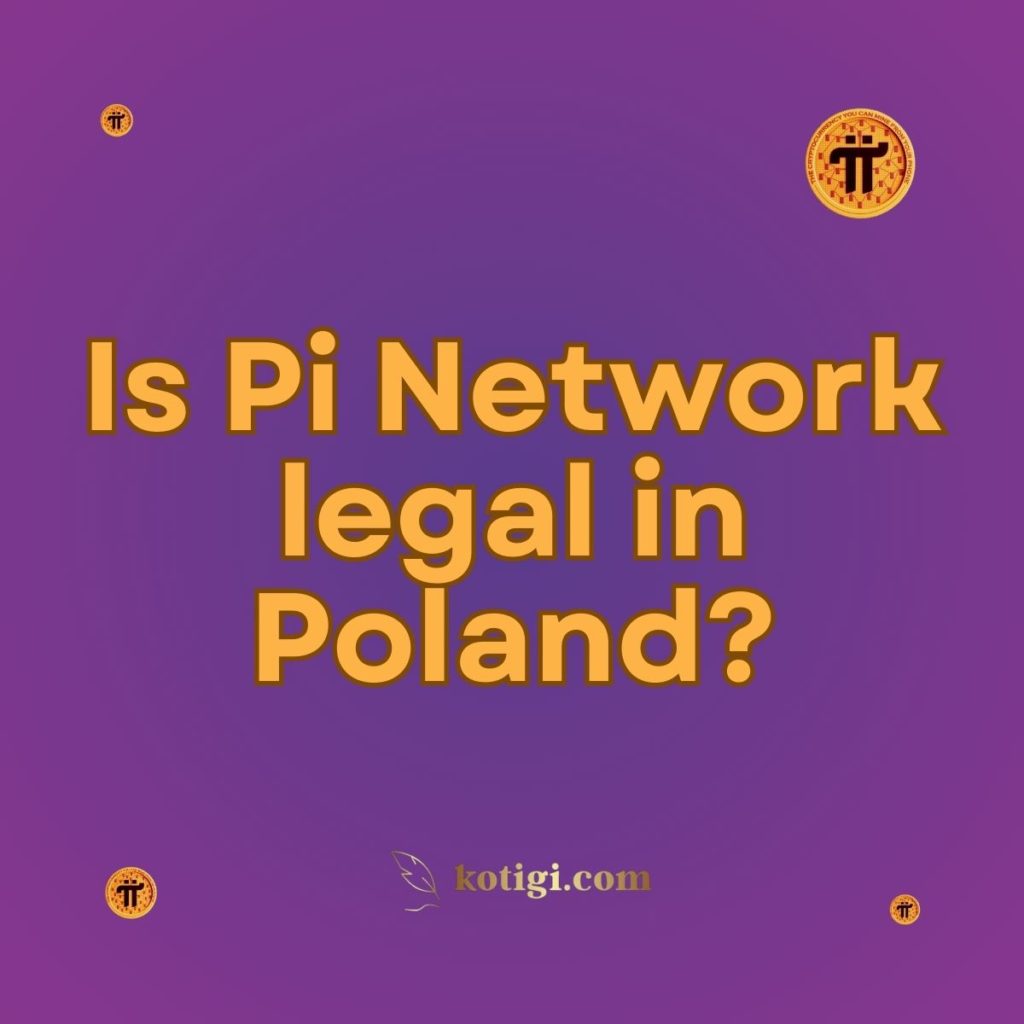
Is Pi Network legal in Poland?
Pi Network is a cryptocurrency project that has garnered attention worldwide, including in Poland. Understanding the legal status of Pi Network in Poland is essential for users and investors, particularly in light of the evolving regulatory landscape surrounding cryptocurrencies. Below is an overview of the current legal status and key considerations for Pi Network in Poland:
1. Regulatory Status in Poland
1.1 Cryptocurrency Regulations in Poland:
Poland has not enacted specific legislation exclusively regulating cryptocurrencies like Pi Network, but it does recognize cryptocurrencies as legal. The country follows the broader European Union (EU) guidelines on digital assets, with oversight primarily from the Polish Financial Supervision Authority (KNF). Cryptocurrencies are not recognized as legal tender but are treated as property or assets. This means that while individuals can buy, sell, and trade cryptocurrencies, they are subject to specific regulations regarding anti-money laundering (AML), taxation, and consumer protection.
1.2 Pi Network’s Legal Standing:
As Pi Network is still in its development phase and its tokens have not yet been listed on any major exchange, it does not currently fall under extensive regulatory scrutiny in Poland. However, as the project progresses, especially if Pi tokens become tradable or hold monetary value, Pi Network may need to comply with existing regulations that apply to digital assets and financial services.
2. Polish Financial Supervision Authority (KNF) Oversight
2.1 Cryptocurrency Classification and Regulation:
The KNF oversees financial markets in Poland, including cryptocurrencies. If Pi Network’s tokens are eventually classified as financial instruments, the project will need to comply with the regulations governing such assets. This could include requirements for registration, reporting, and providing clear, transparent information to users and investors.
2.2 Initial Coin Offerings (ICOs) and Token Sales:
If Pi Network decides to launch an Initial Coin Offering (ICO) or a similar fundraising event, it would be subject to regulations enforced by the KNF. This includes ensuring that the ICO is conducted transparently, with adequate disclosure of information to potential investors, and that it complies with any relevant Polish laws and EU directives.
3. Anti-Money Laundering (AML) and Counter-Terrorism Financing (CTF) Compliance
3.1 AML and KYC Requirements:
Poland has implemented strict AML and CTF regulations in line with EU standards. If Pi Network introduces features that involve financial transactions or the exchange of Pi tokens, it must comply with these regulations. This includes implementing know-your-customer (KYC) procedures to verify users’ identities and ensuring that any suspicious activities are reported to the relevant authorities.
3.2 Registration and Compliance:
If Pi Network or related services in Poland are considered digital currency exchanges or financial service providers, they would need to register with the appropriate regulatory bodies and comply with AML and CTF obligations. Non-compliance with these regulations could result in significant penalties and legal challenges.
4. Taxation and Consumer Protection in Poland
4.1 Tax Obligations:
In Poland, cryptocurrencies are treated as property or assets for tax purposes. This means that any gains from the sale, trade, or exchange of Pi Network’s tokens would be subject to capital gains tax. Polish users must report their cryptocurrency transactions to the tax authorities and pay any applicable taxes. The Polish Ministry of Finance has provided guidelines on how cryptocurrencies should be treated for tax purposes.
4.2 Consumer Protection Laws:
Pi Network must adhere to Polish consumer protection laws, which are designed to ensure that users are treated fairly and that the service is transparent. This includes providing accurate information about the risks associated with using Pi Network and ensuring that any marketing or promotional activities are not misleading. Non-compliance with consumer protection laws could lead to legal consequences in Poland.
5. European Union (EU) Regulatory Framework
5.1 EU-Wide Regulations:
As a member of the European Union, Poland is subject to EU-wide regulations on digital assets and cryptocurrencies. Pi Network must ensure that it complies with not only Polish laws but also EU directives, such as the Markets in Crypto-Assets (MiCA) regulation, which will provide a comprehensive regulatory framework for cryptocurrencies across the EU once it is fully implemented.
5.2 Cross-Border Operations:
If Pi Network operates or has users across multiple EU countries, it must consider cross-border regulations that could affect its operations in Poland. Compliance with EU-wide regulations ensures that Pi Network can legally operate within Poland and throughout the EU.
Conclusion
Pi Network is currently legal in Poland, but its regulatory status will depend on the evolution of the project and the implementation of features involving the exchange or use of Pi tokens. As Pi Network continues to develop, it must comply with Polish and EU regulations regarding AML, KYC, taxation, and consumer protection. Polish users should stay informed about the legal and regulatory environment to ensure compliance and minimize potential legal risks.




